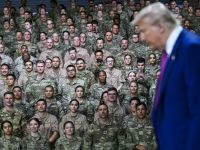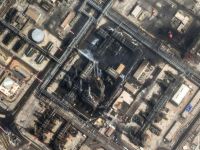General Security Chief Maj. Gen. Abbas Ibrahim argued Monday that his proposal to modify the defense law to raise the retirement ages of senior army officers was an all-inclusive suggestion that would not affect the state's treasury or the army's hierarchy.
"No one has the right to give his opinion on what he doesn’t know at all or doesn’t know its whole aspects," Ibrahim told As-Safir newspaper.
He explained that raising the retirement age was vital and carefully considered, saying the proposal to modify the defense law was "comprehensive."
"It will not affect the state's treasury or the army's hierarchy ... and it's not true that it will pose additional burdens of the treasury or lead to the bloating of the military institution with generals."
Ibrahim underlined that his initiative was ongoing and being debated with rival parties.
"I will continue my endeavors to reach an agreement over the matter, and contacts are ongoing with all the concerned parties."
Media reports said that Ibrahim was mediating between Free Patriotic Movement leader Michel Aoun and Speaker Nabih Berri, who have been at odds over the issue of military extensions and the opening of an extraordinary legislative round in the Parliament.
Raising the retirement ages of senior Army officers would include Aoun’s son-in-law, Brig. Gen. Shamel Roukoz, who currently heads the Army Commando Unit.
Approving the proposal would lead to a breakthrough in reviving the work of constitutional institutions — particularly Parliament legislation and the Cabinet — pending the election of a president, sources close to the FPM told The Daily Star Monday.
The sources expected the implementation of a draft law to raise the military’s retirement ages to be coupled with the signing a decree to open an extraordinary parliamentary session before Oct. 15, when Roukoz is due for retirement.
The Future Movement, which no longer opposes the opening of an extraordinary parliamentary round, still opposes a draft law to raise the retirement ages of senior military officers.
Parliament hasn't held a legislative session since it voted to extend its term by more than two and a half years on Nov. 5, 2014.
The Lebanese Forces and FPM previously said that their lawmakers will only attend a session if the agenda included the two urgent draft laws, while Kataeb Party said it will only attend session set to elect a new head of state.








